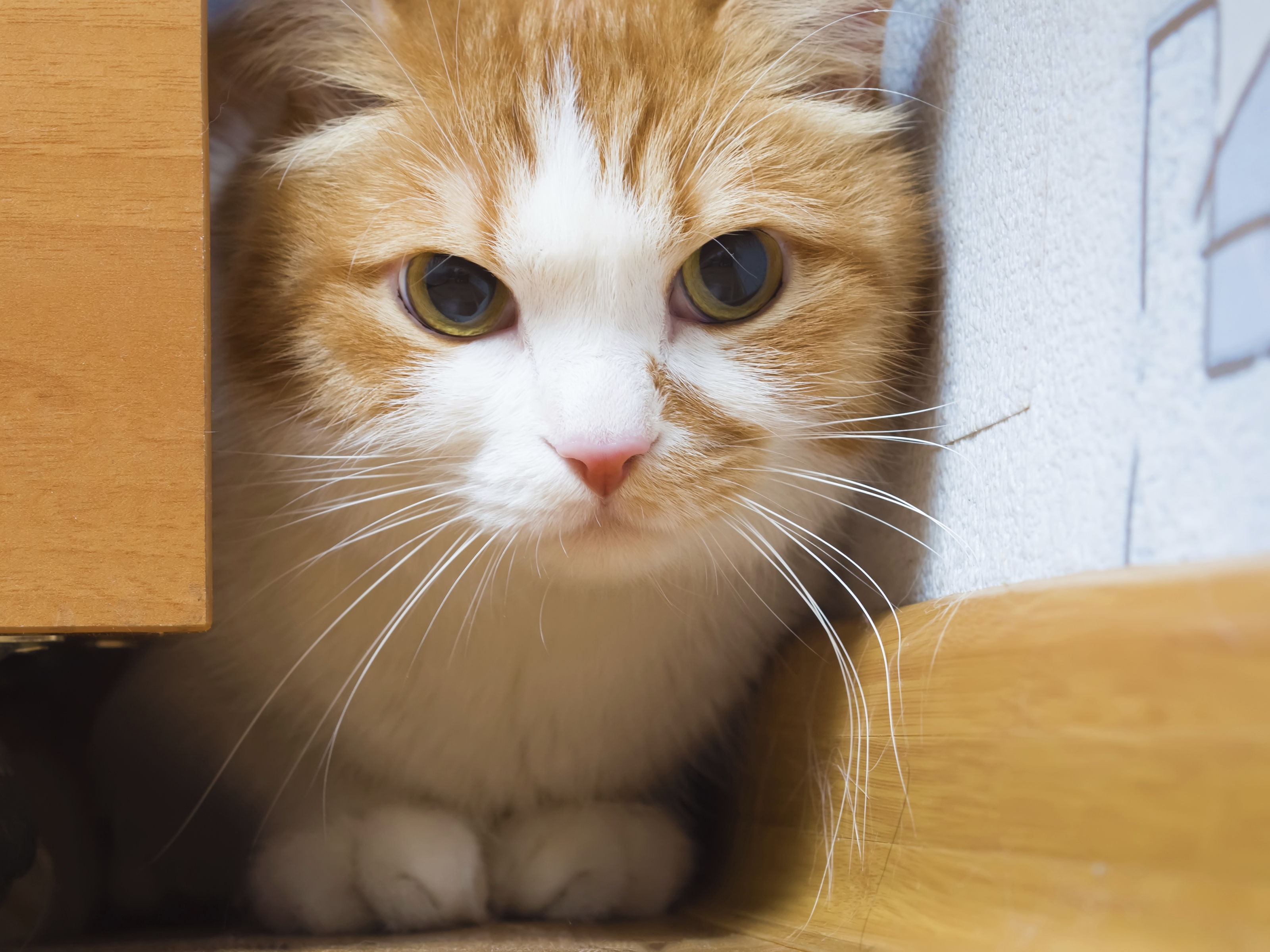A Spotlight On Feline Illness: How To Tell If Your Cat Is Sick
 Most cat owners are aware of their cat’s love of hiding…boxes, paper bags, cupboards, under the bed; it seems that no place is off limits to a curious feline. For their survival in the wild, cats have also evolved to hide signs of illness and injury from other animals. Unfortunately for modern cats, those “other animals” are often their human companions.
Most cat owners are aware of their cat’s love of hiding…boxes, paper bags, cupboards, under the bed; it seems that no place is off limits to a curious feline. For their survival in the wild, cats have also evolved to hide signs of illness and injury from other animals. Unfortunately for modern cats, those “other animals” are often their human companions.
Because cats are so stoic when it comes to illness, and often don’t display obvious signs that something is wrong until the condition has become advanced, it’s up to us cat owners to do the detective work necessary in order to figure out if our cat is sick.
Behavior Changes Can Indicate Your Cat Is Sick
Is your independent and aloof feline suddenly acting like a clingy, meowing kitten? Or, perhaps your affectionate lap kitty abruptly wants nothing to do with you or anyone else in the family? Maybe you have a normally energetic cat that has become lethargic lately and sleeps much more than usual?
Changes such as these can indicate underlying health problems and should be brought to your veterinarian’s attention.
Changes In Litter Box Habits May Signal Problems
The majority of cats are fairly habitual in their litter box usage, so it’s relatively easy to spot changes in this area. If your cat is suddenly having accidents outside the litter box, is constipated or has diarrhea, or just seems to be urinating or defecating much less frequently, an underlying medical concern may be responsible.
Pay Attention To Your Cat’s Eating And Drinking Habits
Any change in your cat’s regular eating or drinking patterns is cause for concern, whether your cat has become ravenously hungry or thirsty or not as interested in food and water.
Contact us immediately if you notice these or other changes in your pet’s food or water intake.
Don’t Ignore Coughing Or Vomiting
Coughing or vomiting is often attributed to hairballs, but these are actually not normal cat behaviors. Our feline friends have evolved mechanisms to deal with the hair they ingest from self-grooming and from consuming prey, and they don’t involve regurgitation. Excessive coughing or vomiting in cats is a warning sign and could be attributed to anything from allergies, bronchitis, and asthma, to intestinal blockage and heart disease.
The Importance Of Physical Appearance
Every cat is different, but there are a few consistent traits among them and one of those traits is fastidious grooming. If your cat’s once luxurious coat is looking dull and unkempt, or you notice a sudden weight loss or gain, it’s time to bring him or her in for a checkup.
Dental Concerns
By age 3, the majority of cats have some form of periodontal disease, which can trigger a variety of other health problems if left untreated. Symptoms such as bad breath, bleeding, loose teeth, or inflamed gums means it’s time for kitty to see the veterinarian.
The Benefits Of Routine Wellness Visits
Because cats age much more rapidly than humans, a lot more can occur health-wise in one year of a cat’s life, than we may realize. Catching and treating underlying health problems early with regular wellness exams will improve your cat’s quality of life and can even add years to it as well.
Your team at Lone Tree Veterinary Medical Center is here to help your cat achieve optimal wellness. If you notice any of the above symptoms, or just feel that there is something “off” about your cat, don’t hesitate to contact us.



